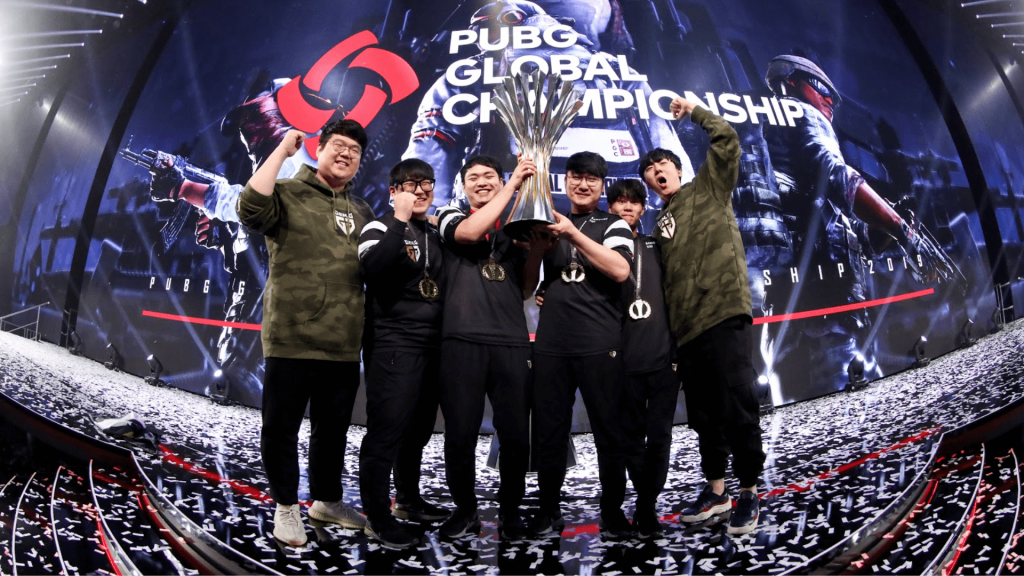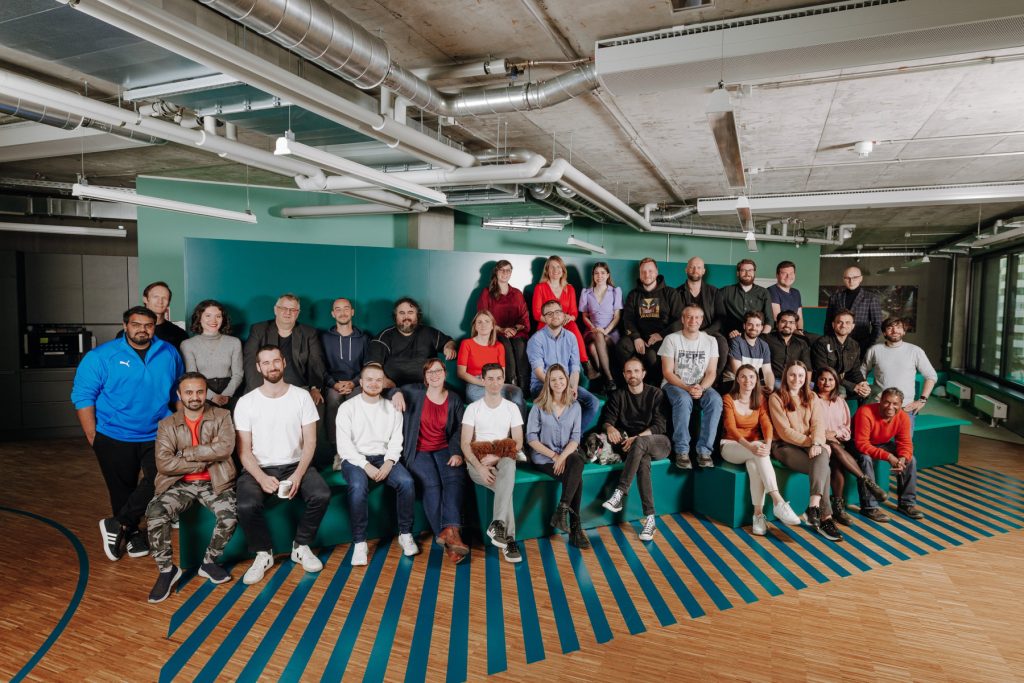This article was originally published in Esports Insider’s print magazine The Esports Journal Edition 12 on April 4th 2023. You can buy a print copy here or read the edition online for free here.

Data is instrumental in taking advantage of the opportunities that come with the growth of esports. In and out of the server, it can be the deciding factor in a series win and a business win alike.
Collecting data streams from games to supply the esports industry is precisely the focus of endemic data companies, such as Berlin-based in-game data experts Bayes Esports. The company’s technology is leveraged by a range of businesses and esports professionals that analyse in-game statistics, including betting websites, esports teams, and even other data companies.
Because of that, partnerships closed by Bayes with publishers like Riot Games and KRAFTON are valuable industry-wide.
Bayes’ deal with KRAFTON, the developer behind 2017’s hit game — and one of the best-selling PC games of all time — PUBG Battlegrounds, is becoming a particularly potent example of the power of data to strengthen an esports scene. The symbiotic publisher-data relationship can expand, advertise, revamp, or even change the whole strategy of a scene.
“Bayes provides more than just data,” PUBG Esports Department Head Minho Lee told The Esports Journal. “From simple numbers to in-depth insights on the games, Bayes’ data itself will tell the stories of each match, each tournament and each player. Fans and players can then read into this data to make their calls and develop their own strategies, allowing them to delve deeper into the world of PUBG and PUBG esports.”
As Lee put it, by sharing its data, PUBG Esports can approach audiences that are currently on the periphery of esports. “With the help of Bayes, we wish to establish a comprehensive data platform which will sort and classify data in meaningful and comprehensible ways,” Lee continued. “By providing our community with reliable and interesting esports data, we aim to grow in the esports data business. That way, we can promote PUBG and make it engaging for fans and players outside of the game as well.”
Esports data companies feed an impressive stream of stakeholders that spans the entire esports industry. Not only do publishers, teams and tournament organisers leverage it for stories and insights about their competitive scene, but the data also contributes to other sectors that move the economy of esports, including service providers and gambling websites that need it to provide accurate statistics and services. The proof is in the pudding: Bayes counts companies like Pinnacle, Sportsflare, BETER, Abios, and Kambi in its portfolio of clients.

The data does not make the stories itself. But it lets the KRAFTON’s of the world spot trends that will engage the community. “We are not storytellers here at Bayes Esports; we just provide others with all the tools they need to become one” Dr.-Ing. Notger Heinz, Principal Data Scientist at Bayes, recently said in an article for The Esports Journal’s sister site Esports Insider.
But for Bayes to create a teeming data stream for stakeholders to tap into, it needs to go straight to the source — and that source has to be cooperative.
“Working with a publisher,” explained Martin Dachselt, CEO of Bayes Esports, “not only allows us to access the full range of esports data available in a particular game title, but also allows us to work much more closely with the game and its esports community itself. There are a lot more avenues that we can explore to develop tools and solutions for teams, players, and the community.”
All the stories that can be told and all the results that can be achieved are dependent on the reliability of the data, which is why publisher relationships are so vital. They’re vital “not just for these additional avenues and integration options, but also to be able to offer more reliable and granular data and to stand strong against grey market offerings that threaten the integrity of competitions and betting markets,” Dachselt added.
Integrity? Grey market? That’s a red flag. If data providers are interested in offering their statistics to betting websites, for example, integrity is an enormous consideration. “Fans can rely on content backed by our data, like statistics and results, to be accurate and for the integrity of bets and competitions to be ensured,” Dachselt claimed. “Making sure that fans can trust the content they see or read and that the events they watch are not tainted by shady businesses going on in the background is our highest priority.”
Publishers, though, are the kingmakers. They make, and therefore have access to, all of their own data. What, then, pushed KRAFTON to tap into third-party services? KRAFTON’s objective is to make its esports data more accessible to fans and the community in order to boost engagement. “But easier said than done,” PUBG Esports’ Lee admitted.
“The data for a single tournament is massive and the work that goes into sorting and classifying the data is huge. We then sought to cooperate with a partner that has expertise in this, thus Bayes. With Bayes being a pioneer in this field and having a vast distribution network, we are confident in solidifying our ideas to bring greater joy and fun to PUBG esports fans and players.”
A vast array of technology is needed for collecting all the details necessary to serve esports fans the quality and shoulder content they expect — it won’t come as a surprise that people aren’t watching games and writing down numbers in a notebook.
“Our services open the door to many high-quality and engaging avenues to better visualise what is going on in any given esports match. Player heatmaps, detailed statistics, probability models, and the possibility of automating the content creation process — matching the live feed to underlying live in-game data to create highlight clips that can be posted on social media almost instantly — are just some of the possibilities that exist for us to support tournament organisers during broadcasts.”

The most impressive product set to come out of Bayes’ work with publishers is the ‘LoL Esports Data Portal’, a League of Legends esports database available for organisations, Riot Games partners and the community. A similar kind of product development project is being considered for PUBG: Battlegrounds, the developer told The Esports Journal. “I am sure we will be able to find great use cases that combine the knowledge and experience from both of us to make PUBG even more exciting for fans,” said Dachselt.
The Head of PUBG Esports said the company is increasing its efforts to make the title “an iconic and cultural brand,” relying on partners like Bayes to make it come true. When it launched on December 20th, 2017, the game rocketed to be one of the most-played titles of 2018 and largely kickstarted the trend of battle royales in esports. But while the game’s popularity reached astounding heights, its esports scene hasn’t grown as fast.
Will data get the title back on track to the top? According to Dachselt, KRAFTON’s partnership sees: “The age of data scraping is coming to an end, but the age of official data has just begun.”
